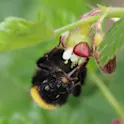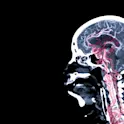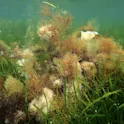
Featured news
29 Jun 2023
Soft robo-glove can help stroke patients relearn to play music
By Mischa Dijkstra, Frontiers science writer The soft smart hand exoskeleton. Image credit: Dr Maohua Lin et al Researchers have developed the prototype of a comfortable and flexible ‘soft smart hand exoskeleton’ or robo-glove, which gives feedback to wearers who need to relearn tasks that require manual dexterity and coordination, for example after suffering a stroke. The present study focused on patients who need to relearn to play the piano as a proof-of-principle, but the glove can easily be adapted to help relearn other daily tasks. Stroke is the most important cause of disability for adults in the EU, which affects approximately 1.1 million inhabitants each year. After a stroke, patients commonly need rehabilitation to relearn to walk, talk, or perform daily tasks. Research has shown that besides physical and occupational therapy, music therapy can help stroke patients to recover language and motor function. But for people trained in music and who suffered a stroke, playing music may itself be a skill that needs to be relearned. Now, a study in Frontiers in Robotics and AI has shown how novel soft robotics can help recovering patients to relearn playing music and other skills that require dexterity and coordination. “Here we […]













